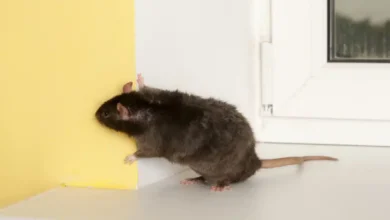How to Protect Your Plants from Insect Damage

Residents of Gaithersburg, Maryland, love maintaining their garden. However, they also face different challenges due to insect damage. Local gardens face threats from various pests, such as aphids, spider mites, and Japanese beetles. These pests can cause great damage to your plants and lead to stunted growth or even death.
If you want to keep your plants and garden safe from these unwanted pests, it is very important to detect the infestation early. By regularly inspecting your plants, you can spot signs of insect activity and start treatment early. Moreover, you should also keep your garden clean by removing debris and dead leaves, as these can serve as hiding spots for many pests.
If you are facing such challenges, it is very important to seek help from a professional in Gaithersburg Pest Control. These experts can provide tailored solutions to protect your plants from insect damage and make sure that your garden stays green forever. Meanwhile, read this blog to learn more about some helpful strategies that will help keep your garden safe.
Prevention and early detection
The first thing you need to do is check your property regularly. You can spot early signs of infestation by closely looking at your plants.
Look for small holes in leaves, discoloration, or wilting. This sign indicates that an insect is feeding on your plant and causing damage. If you catch these signs early, you can start an early treatment before the problem turns into a bigger one.
You should also take proper care of your plants. Healthy plants are less likely to attract pests. Make sure you water your plants daily so that they get the right amount of nutrients daily. It is important to know that you should not over-water them. This can attract pests like aphids. Fertilize your plants with the right nutrients so that they grow strong and stay healthy.
Moreover, Trimming off dead or damaged leaves also helps your plants stay healthy and keeps pests away. Another great way to protect your plants is by choosing pest-resistant varieties. Some plants are naturally less attractive to pests. These plants can help reduce the chances of infestations and keep your garden healthier in the long run.
Natural and physical pest control methods
You can use natural predators to control unwanted pests in your garden. Beneficial insects like ladybugs and lacewings may eat and remove harmful pests such as aphids, mites, and caterpillars. This is a chemical-free process that will help you keep your garden pest-free without damaging the environment.
Physical barriers are another great way to keep insects away from your plants. Row covers and netting will work as a protective barrier and keep away pests like beetles and moths from reaching your crops. Sticky traps can also be used to catch flying insects, such as whiteflies and aphids.
If you want a more natural approach, you can go for organic pest control products like neem oil, diatomaceous earth, and insecticidal soaps to control pests safely. Neem oil acts as a repellent and disrupts the feeding and breeding of insects.
Diatomaceous earth is a fine powder made from fossilized algae. It can be sprinkled around your plants to kill pests by damaging their exoskeletons. However, insecticidal soaps kill oft-bodied pests, like aphids, and are safe for plants if you use them properly.
When you should use pesticides
If you are not getting any solution from the natural methods, you might need to go for pesticides. It is very important to understand when and how one should use chemical treatments safely. Only apply pesticides when you notice a large pest infestation or severe damage.
The pesticides come with labeled instructions; make sure you follow them strictly. Moreover, it is also important to spray pesticides on affected areas to protect other beneficial insects from the chemicals.
Protect your plants today!
If aphids or other insects are causing harm to your garden, make sure to hire a pest control professional in Gaithersburg today.



